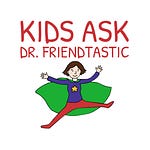(Would you rather read? A TRANSCRIPT of the audio recording is at the bottom of this post.)
Ava has two friends who want to play only with each other. What should she do?
Scroll down for some discussion questions you can share with your child plus how to submit your child’s question.
Unlock the power of friendship!
Become a free subscriber to get the Kids Ask Dr. Friendtastic weekly, 5-minute podcast episodes sent directly to your email plus parent resources.
Join now as a paid subscriber to get even more of the tools you need to support your child's feelings and friendships. You’ll get additional posts for parents, access to the full archive, PLUS, each month, you’ll get access to a live or recorded workshop FOR PARENTS about children’s feelings and friendships at NO ADDITIONAL COST for that month. Topics include Helping Your Anxious Child, Kid Confidence, and so much more.
Join as an all-access subscriber and you’ll get access to all posts PLUS you won’t have to wait: you’ll get access to all workshops for parents AND KIDS as soon as they’re available, and they won’t expire at the end of the month. The all-access membership becomes more valuable over time because I keep adding new workshops. You can see all current workshop topics HERE.
Please help the podcast grow!
I can’t do it alone. If you love the Kids Ask Dr. Friendtastic podcast, please help it continue and grow by sending in your child’s question about friendship and by asking your friends to submit their children’s questions. Here are the instructions:
Adults, please use your smartphone's memo function or an audio app to record your child's question. Hold the phone close to your child's mouth to make sure the recording is clear. Have your child state:
1) their FIRST NAME (or another name),
2) their AGE, and
3) a BRIEF QUESTION or concern about friendship. (Please do not include any friends' names.)
Email the audio file to DrF@EileenKennedyMoore.com. I’ll answer as many questions as I can. (Obviously, this is not psychotherapy, and it’s not for emergency situations.)
Warm wishes,
Think About It Questions to discuss with your child
Why do you think Ava’s friends wanted to play only with each other? Why does Dr. Friendtastic think it matters whether they are in a private or public setting?
Have you ever had someone tell you that you couldn’t play? What did you do?
What do you think of the rule: “You can’t say anyone can’t play”? Do you think it would help kids be kinder and include others? Why or why not?
Are there any situations where you think it’s okay not to include someone? What would you do if a kid was being mean or trying to wreck your game?
Transcript
Hi, there! I’m Dr. Eileen Kennedy-Moore, also known as Dr. Friendtastic. I’m an author and clinical psychologist based in Princeton, NJ.
Let’s hear today’s question:
I’m Ava, and I’m 9. I have two friends in my class who do everything together. Last week, when I tried to join their game at recess, they told me to go play with my other friends. What should I do when this happens?
Hi, Ava. Ouch! It never feels good to hear, “We don’t want to play with you!”
I think it was unkind of the two friends to exclude you at recess! It’s true that some people are closer friends than others, but recess is a public setting–meaning there are lots of people around. The time for private playing is in a private setting–like one of their homes. They could have a play date with just the two of them at one of their homes–no harm done, But in a situation where lots of people are around, insisting on being with just one other person doesn’t make sense.
The problem is, we can’t control what other people do. So, the issue we need to figure out is not what they should have done differently. Instead, we need to focus on, what are you going to do in this situation, when two of your friends only want to play with each other?
It may be that this is a sometimes not always thing. If the two friends are usually happy to include you and only sometimes exclude you, it may be worth watching before you approach them. If they’re already playing with other people, or they just seem more relaxed and open, go ahead and try to play with them. On the other hand, if they’re huddling close and whispering, they’re probably not open to including you, so don’t bother approaching them. Just go find someone else to play with.
You might be wondering whether you should say something when these two friends insist on playing only with each other. If your school has a rule that “You can’t say anyone can’t play,” it might be useful to remind them of that. If they’re hogging some play equipment, you might want to say, “I’d like a turn.” You could also tell them, “That was a mean thing to say” then walk away. If they care about their friendship with you, that might make them think about what they’re doing.
Unfortunately, you can’t make people want to play with you. So if they’re not being kind to you, your best bet is probably to find someone else to hang out with.
There’s one more thing that I hope you’ll do: Remember this. Remember what it feels like to be excluded and promise yourself that you’re not going to treat anyone this way. When someone approaches you and wants to play, tell them, “Sure!” That’s the kind thing to do.
This has been Kids Ask Dr. Friendtastic. If you have a question about making and keeping friends that you’d like me to answer, go to DrFriendtastic.com, and click on the podcast tab to see how to submit your question.













Share this post